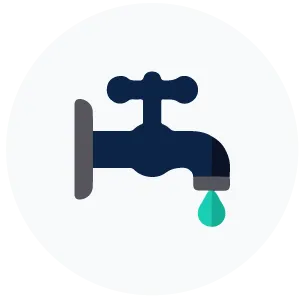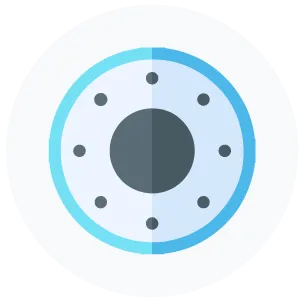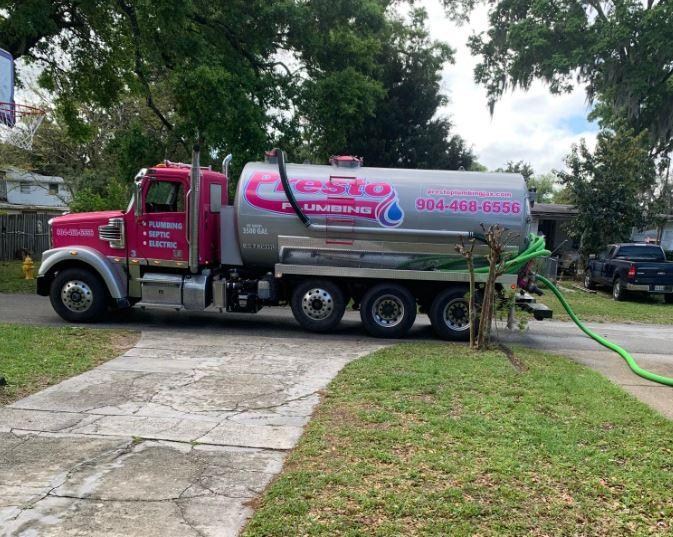Got Questions?
Got Questions?

24/7 Plumbing
Licensed Jacksonville plumbers to help you out for any disaster fast. 24 hour plumber Jacksonville Fl!

Repiping
We can repipe your entire home with our partial or whole home repiping!

Drain Cleaning
If you have any plumbing stoppages, we can inspect and clean your drains!

Water Heaters
Installation of service for any style of water heater: Gas or electric, tank or tankless!

Inspections
For any of your plumbing or septic needs. Includes sewer camera inspections!
How Often Should I Pump My Septic Tank? A Complete Maintenance Guide

Just like how a good friend regularly checks in on your wellbeing, your septic tank needs regular attention too. If you're wondering how often should I pump septic tank, you're asking a crucial question that every homeowner with a septic system should consider.
Let me share with you what I've learned from extensive research and conversations with septic system experts. Together, we'll explore the timing, signs, and importance of septic tank pumping to keep your home running smoothly.
Understanding Your Septic System's Needs
Your septic system is like a silent partner in your home's waste management. According to the Environmental Protection Agency (EPA), the frequency of pumping depends on several key factors:
Your household size plays a significant role in determining how often to pump septic tank. A family of four typically needs more frequent pumping than a couple living alone.
The size of your septic tank matters too. The National Environmental Services Center recommends that a 1,000-gallon tank serving a family of four should be pumped every 2-3 years.
The Science Behind Septic Systems
To truly understand why regular pumping is essential, let's explore how your septic system works. When wastewater enters your tank, it naturally separates into three layers:
The top layer consists of oils and greases that float to the surface, forming what experts call "scum."
The middle layer contains the relatively clear water, while the bottom layer holds the heavier solids, or "sludge."
The Water Environment Federation explains that bacteria in your tank break down waste materials, but they can't decompose everything. Over time, the undigested materials accumulate, which is why regular pumping becomes necessary.
Understanding the Septic Treatment Process
Your septic system is actually a complex ecosystem of beneficial bacteria working tirelessly to process waste. Your septic system works as a natural water treatment facility right in your backyard. Here's how the process works:
Primary Treatment occurs in the tank where solids settle and begin breaking down. Secondary Treatment happens in the drain field, where filtered wastewater is naturally purified by soil bacteria.
The Right Pumping Schedule
You might be wondering, "how often should I pump my septic system?" Let's break it down based on household size and tank capacity:+
For a 1,000-gallon tank:
1-2 people: Every 5-6 years
3-4 people: Every 2-3 years
5-6 people: Every 1-2 years
7+ people: Annually
For a 1,500-gallon tank:
1-2 people: Every 6-7 years
3-4 people: Every 3-4 years
5-6 people: Every 2-3 years
7+ people: Every 1-2 years
These are general guidelines, and your specific situation might require adjustments.
Factors That Affect Pumping Frequency
Several factors can influence how often should I pump out septic tank:
Water Usage: High-efficiency appliances and water-conscious habits can extend the time between pumpings.
Garbage Disposal: If you use a garbage disposal frequently, you might need to pump up to 50% more often due to increased solid waste entering the system.
Household Products: Certain cleaning products can kill beneficial bacteria in your tank, potentially requiring more frequent pumping. The National Sanitation Foundation recommends using septic-safe products to maintain system health.
Understanding Your System's Capacity
The EPA provides guidance on calculating your system's daily capacity. A typical adult uses 50-100 gallons of water per day. Understanding your usage patterns helps determine optimal pumping frequency.
Warning Signs You Shouldn't Ignore
Sometimes your septic system will tell you when it needs attention. Watch for these warning signs:
Your nose might be the first to alert you. Unpleasant odors around your drain field or inside your home often indicate it's time for pumping.
Slow-draining fixtures or gurgling sounds in your pipes are like your system's way of asking for help.
Standing water or unusually lush grass around your drain field might indicate your system is overwhelmed and needs immediate attention.
Long-term Benefits of Regular Pumping
Think of regular septic pumping as an investment in your home's future. According to EPA Proper maintenance can extend your system's life by 20-30 years.
Regular pumping helps prevent costly repairs and protects your property value. It's much like taking care of your car with regular oil changes – a little prevention goes a long way.
Making Your Septic System Last
Beyond knowing how often should I pump septic tank, there are daily habits that can help maintain your system:
Be mindful of what goes down your drains
Conserve water to prevent system overload
Keep detailed maintenance records
Schedule professional inspections annually
Direct roof drainage away from your drain field
Avoid planting trees near septic components
Never park vehicles over your septic system
Use water efficiently throughout your home
Maintain your drain field properly
Keep accurate records of system maintenance
The Cost Factor
While regular pumping might seem expensive, it's far more affordable than replacing a failed system. The RCAP reports that pumping typically costs between $250-500, while system replacement can exceed $10,000.
Seasonal Considerations
The Onsite Sewage Treatment Program recommends considering seasonal factors in your maintenance schedule. Spring is often ideal for pumping, as winter usage patterns and frozen ground conditions can affect system performance.
Environmental Impact
Proper septic maintenance isn't just about your home – it's about protecting our environment too. The EPA's SepticSmart Program emphasizes that well-maintained systems help prevent groundwater contamination and protect local watersheds.
Professional Partnerships
Building a relationship with a qualified septic professional can provide valuable insights into your system's specific needs. The National Environmental Health Association recommends annual professional inspections alongside regular pumping.
Conclusion
Remember, asking "how often should I pump septic tank" is just the beginning of responsible septic system ownership. By following these guidelines and staying attentive to your system's needs, you're protecting both your home and the environment.
Consider this guide your friendly companion in septic system maintenance. Together, we can ensure your system serves you well for years to come. Regular pumping, combined with mindful usage and proper care, will help your septic system function efficiently for decades.
Remember, your septic system is a long-term investment in your property, and proper maintenance through regular pumping is key to protecting that investment.
Contact
Presto Plumbing LLC
6509 Trade Center Drive
Jacksonville, FL 32254


